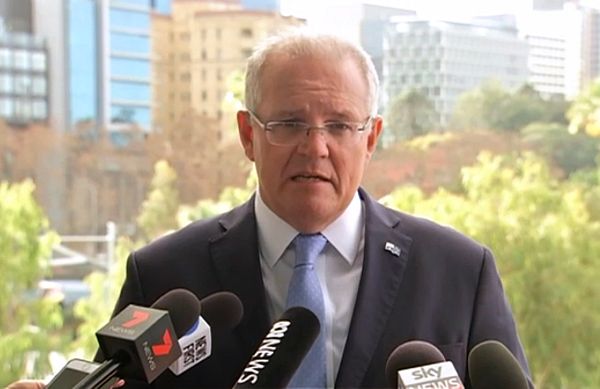Australia is wrongly claiming Pacific funding projects with no environmental benefit as climate adaption aid, according to a report authorised by Greenpeace Australia Pacific.
The Pacific Research and Investigations Report said Australia did so to meet its funding obligations to smaller island nations and that the nation had “greenwashed” its most expensive climate adaption aid promise.
It accused Australia of using “accounting tricks” to spend US$80 million over 2018 and 2019 for a governance facility in Papua New Guinea.
“Neither the project’s long description or Australia’s own evaluation report mention climate adaptation or the environment,” the report said.
Greenpeace also found that projects in Kiribati had been misleadingly described as “significantly focused” on climate adaption.
Former Kiribati president Anote Tong disputed the labelling after, in 2013, an Australian-funded road rehabilitation project was established in South Tarawa, the nation’s capital and the home to more than half the country’s population.
While the rehabilitation of the road was much needed, it did not have any relevance to climate change or increasing the resiliency of Kiribati’s population, the report said.
“Climate change projects in my view should be about building resiliency so that when the next storm comes, or the next king high tide, we will remain above water and be safe – but that is not the case,” Tong said.
He called the road “a wonderful project” for the country’s small transportation network on the atoll.
“But it hasn’t done anything to help with climate change because already the road is threatened by erosion on one side,” Tong said.
“The water has been coming over the road in extra high tides and actually damaging it and that road project was one of the climate change projects.”
Dr Vijay Naidu, a professor of development studies at the University of the South Pacific (USP), is scathing over a lack of further action from the Australian government after pushing a two-degree warming on greenhouse gas emission limitations rather than the universally accepted 1.5 degrees.
He stated that: “because Australia is the most powerful actor and can be labelled the regional bully, it managed to push small islands states in the region for a long time to accept its agenda”.
The Australians had also failed to share or deliver its emissions reduction targets or level of climate ambition at the most recent 2019 Pacific Islands Forum.
A $500 million(US$355 million) pledge on climate aid was offered to cover the period of 2020 until the end of 2025.
“The pledge was met with mixed reactions by the region, with Pacific island leaders stating that this was yet another example of Australia offering financial assistance in exchange for the Pacific islands’ silence on climate change,” the report said.
Australia, unlike other developed countries that acknowledged their culpability for greenhouse gas emissions, was seen in the Pacific as shirking its international responsibility to climate justice.
Investigations found that Australia underspends on climate aid comparably, allocating around 1 per cent of its total foreign aid on climate adaption – based on average spending from 2016 until 2018 – whereas other Western nations fork out up to 10 times more.
By the end of that period, Australia had stopped its contributions to a UN green climate fund despite appeals from the Pacific island nations for greater “multilateral climate finance”.
Australia has all but snubbed the Paris agreement, a legally binding international treaty on climate change adopted by 196 countries at the 2015 climate change conference, which has affected its nearest Pacific neighbours.
Greenpeace also pointed to public comments from Australian prime minister Scott Morrison, who said the country is not held accountable by the signatories of the agreement and “nor are we bound to go tip money into that big climate fund – we’re not going to do that either”.
Dr Naidu said Australia’s preference to offer so-called adaptation aid over strengthening its domestic mitigation policies has affected the Pacific’s view of Australia.
“Australia is seen as a hypocrite by many Pacific island countries for failing to cut down its emissions, but trying to make up for its sins by offering aid for adaptation to island countries – and the island countries know this,” he said.
The entire block of Pacific island nations had once called for the establishment of a technical support arm for developing countries to access a “loss and damage” financial assistance for climate impacts.
But the report revealed that an anonymous source had aid that at the 2019 climate change conference climate, Australia pushed hard against the proposal in negotiations.
It came after the report found that while former Pacific leaders and countries’ opposition politicians had responded to Greenpeace’s questions, government officials in power did not.
“Speaking out about Australia’s climate policies carries a degree of political risk, as aid may not be recommitted in following years,” the report said.
SOURCE: PACIFIC ADVOCATE/PACNEWS













